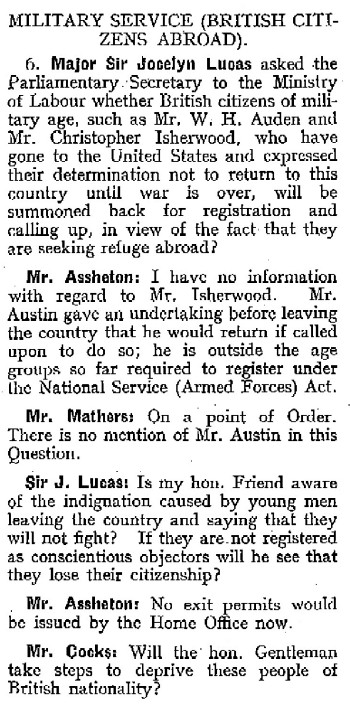As a sort of tangent in my hunt for Henry Reed material, I've been reviewing items from the period which ask (or answer) the question, "Where are the war poets?", which came as a lament that no Brooke or Owen or Sassoon was seen to emerge from World War II. So it was with interest that I noted several references in Professor's Goethal's conference papers that the famous question was even raised in Britain's Parliament: in "Talking to India: George Orwell, the BBC, and British Policy Towards the Indian Empire During the Second World War" (n13), "Philip Larkin and the Poetics of Resistance to the Second World War" (n15, collected in Philip Larkin and the Poetics of Resistance [Andrew McKeown and Charles Holdefer, eds. Paris: L'Harmattan: 2006]), and "The Muse that Failed: Poetry and Patriotism During the Second World War" (appears in The Oxford Handbook of British and Irish War Poetry [Tim Kendall, ed. London: Oxford, 2007]).
So I was quite surprised when I went to the Parliamentary Debates for June 13, 1940, and discovered that the question raised in the House of Commons was not so much the rhetorical "Where are our war poets?", but the much more literal, "Do you know where Messrs. Auden and Isherwood have got to?"

The question, of course, was what to do about British men of required registration age (between 18 and 41 years old, according to the National Service [Armed Forces] Act of September 3, 1939), who were abroad either by choice or necessity. W.H. Auden had emigrated with Isherwood to New York City in 1939, was 33 years old in 1940, and became a U.S. citizen in 1946.







